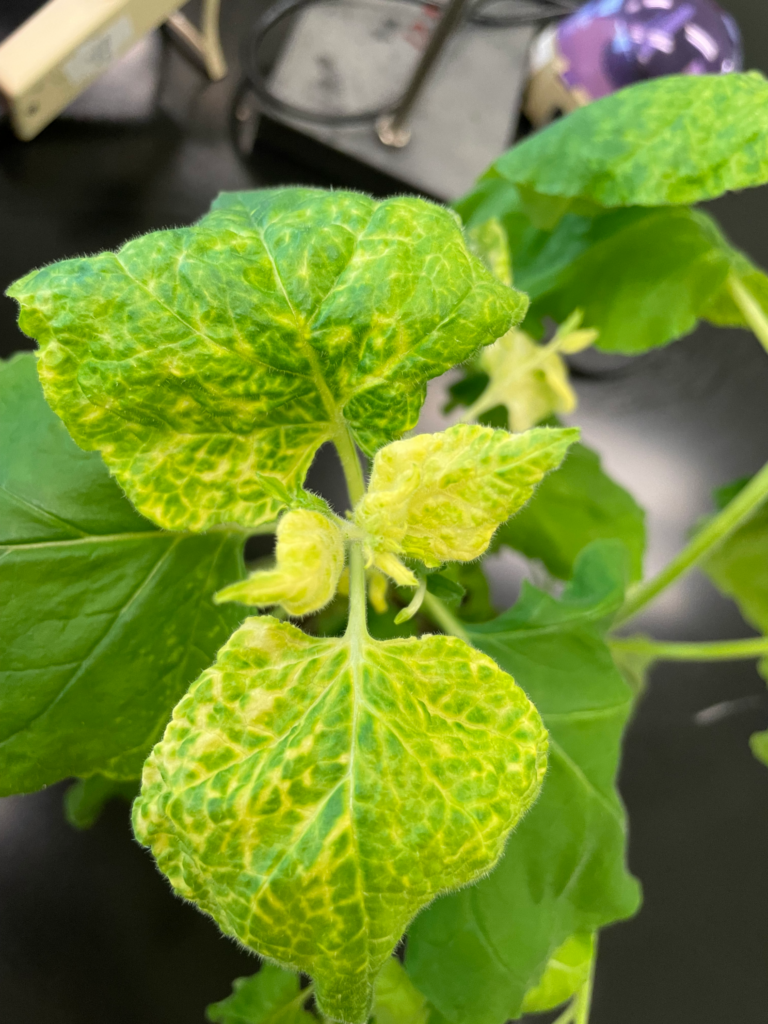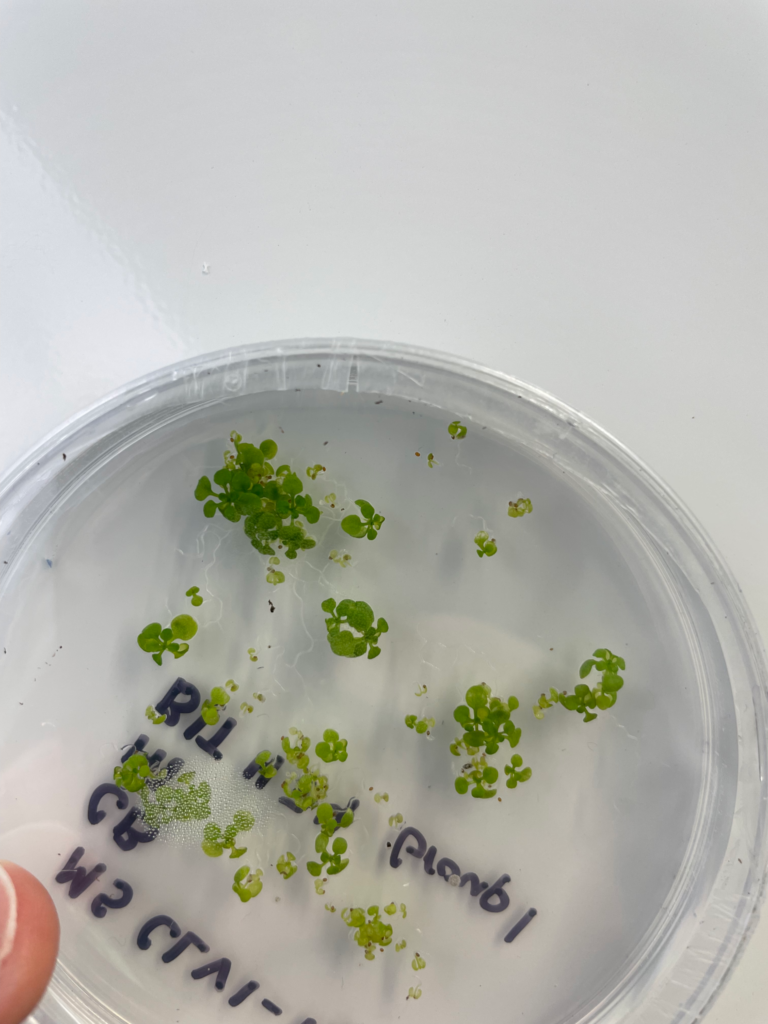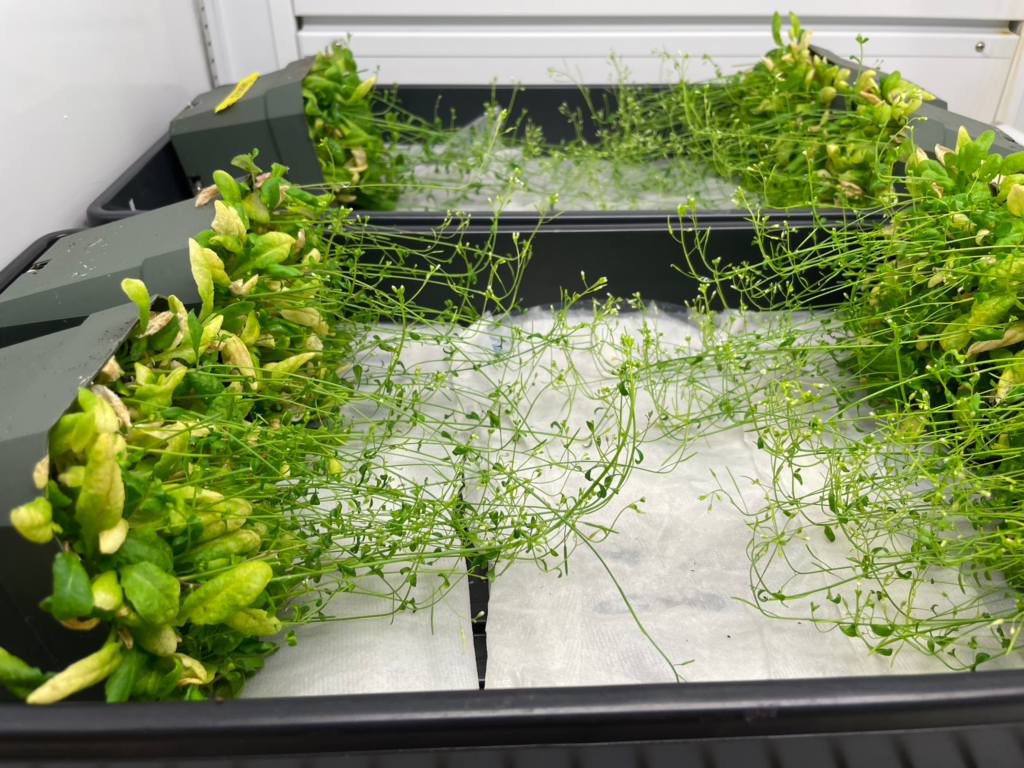Introducing… Plant Genetic Engineering!
After a successful Fall 2021 semester, the BIT Program will be offering its relaunched course on plant genetic engineering again next semester (Spring 2022). Dr. Dums, who received his PhD in Plant Biology from NC State in 2018 and joined the BIT Program as a teaching postdoc last fall, redesigned the course and used his own background in plant biotechnology to guide students through it this fall. The course is perfect for students who are interested in plants, genetic engineering, or all of the above.
While the course will provide an introduction to genetic engineering, Dr. Dums is focusing on being able to solve a problem, rather than a broad introduction to the topic. “I want students to come out of this class with some problem solving skills,” he said. Plant biology is a very large field, and most plant genetic engineering classes tend to stick to the usual model organisms, but he wants to give students the ability to work with more unconventional plants too. “We’ll be working with microalgae, which are still plants, but you can’t use some of the normal methods with them,” he said. Student’s design projects focused on microalgae engineering, and future students will build upon their work and the methods they designed for engineering its DNA.
I want students to come out of this class with some problem solving skills
Dr. Dums
Dr. Dums is still working on tweaking the labs for next semester, and some may center around work from Dr. James Van Etten from University of Nebraska-Lincoln. Recent work in his lab has developed a promising genetic engineering technique for the microalgae Chlorella variabilis after several decades of research. So instead of having his students design an entirely new system, “I might have them take this system, which we know works, and have them ask their own questions.” So students could knock out genes to see what they do, try to engineer the microalgae as a biofuel, or even work on a basic biology question.
Besides the lab, Dr. Dums plans to keep most of the class the same as this past semester. Lectures will be dedicated to talking about the wide range of techniques used for genetically engineering plants, even if students won’t be implementing them in lab. However, students will occasionally have the opportunity to immediately practice a technique they learn about, as he is planning to intermix lab and lecture time. While he’s focusing on more standard lab techniques like Agrobacterium and microparticle bombardment, students will also complete three group projects in which they will research and report on new techniques that are being developed in the field. “I had my students do these group projects last semester, and it was really cool,” he said. “A few groups found some techniques I hadn’t heard of before.”
The class will help students build a basis of knowledge before it expands to more advanced and complex topics. “A background in plant biology would be helpful, but it’s not strictly necessary,” he said. Because the prerequisite for the course is BIT 410/510, students will be expected to be familiar with the basics of genetics and molecular biology techniques, but the course is designed to be accessible to students with very different backgrounds. He’s also planning to try to tailor the class to the interests and needs of the students. “I’ll be giving the students a survey at the beginning of the class, so that I know what they know, and I give them as much background information as they need,” he said. He also tries to pair students up for the lab project so that students with less experience in plant biology or genetic engineering are working with students with more experience.
Dr. Dums is also using the resources across NC State’s campus to enrich the course or even just help his students draw connections between the information they’re being taught and the work that produced it. “I’m trying to source a lot of stuff from NC State, which may be model organisms or just knowledge.” For example, he’s been working with Dr. Carly Sjogren, who joined the BIT Program last spring. “She’s done quite a lot of work with Arabidopsis and she’s a phenomenal source of plant knowledge in general,” he said. He also made a point of mentioning when information in the class came from breakthroughs made by NC State researchers. “I’m trying to show people that we have a lot of plant biology work going on across campus,” he said, “from agriculture to horticulture to microbiology and pathology.”
I’m trying to show people that we have a lot of plant biology work going on across campus
Dr. Dums
Plant Genetic Engineering will be offered in session II next semester, and it will be a great way for students to learn more about genetic engineering in general. Though a lot of the techniques are specific to plants, they’re still highly adaptable, so students could apply their newfound skills to other organisms. And because the class is focused on developing problem solving skills, students will be equipped to develop new techniques if they run into an uncommon model organism.
- Categories:


